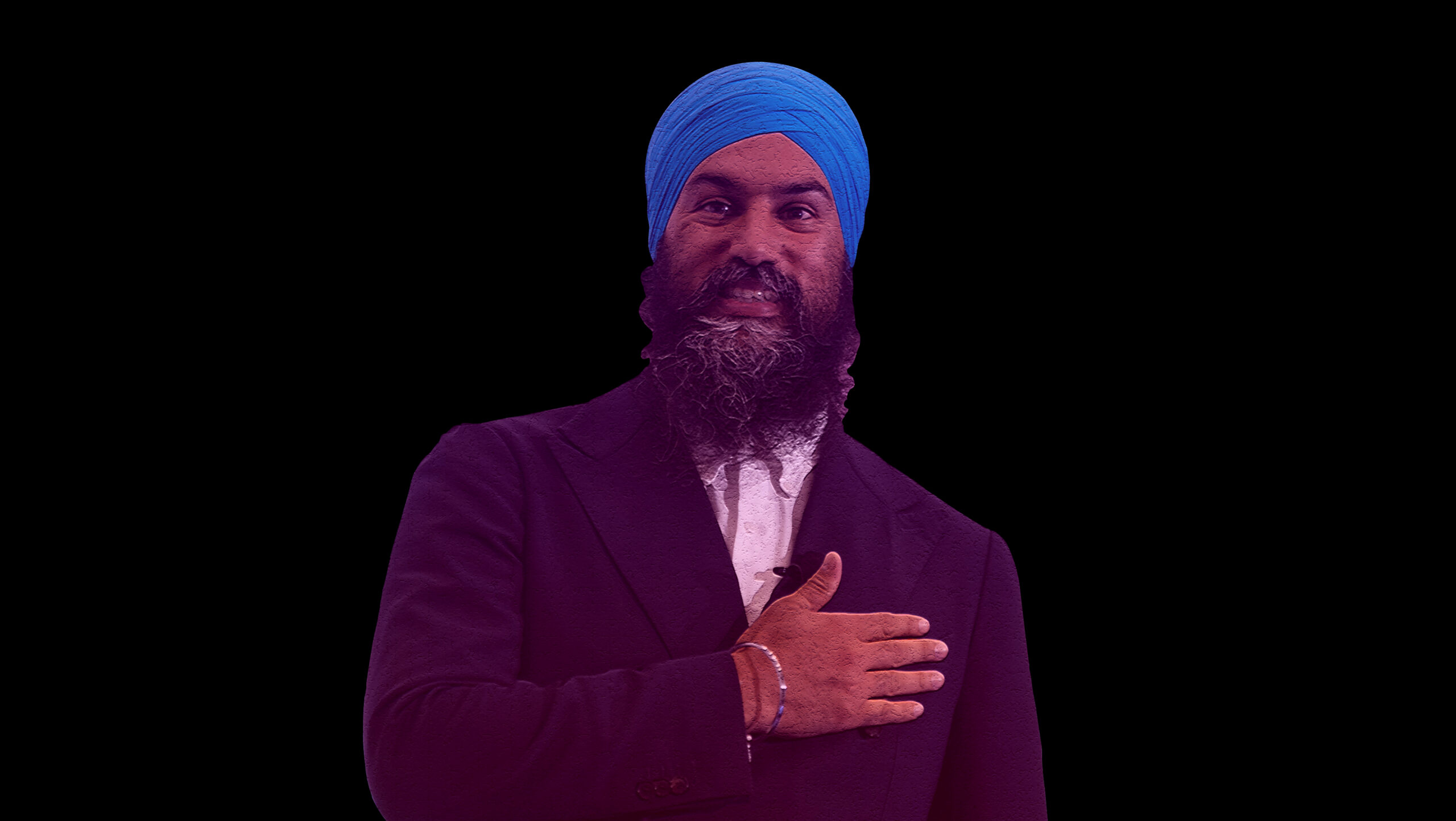This story is part of Rainbow Votes 2019, special Canadian election newsletter by Xtra. You can sign up here to receive the newsletter directly in your inbox, every Tuesday.
It hasn’t been an easy campaign for the NDP. The party has been polling at a distant third since last month, and leader Jagmeet Singh has been criticized for being underprepared for the job. But in a race where the Conservative leader refuses to apologize for past homophobic remarks and the Liberal leader is still apologizing for wearing blackface, the NDP is winning on one front: The party is living up to its reputation as one of Canada’s most diverse, touting the country’s first leader of colour and nominating more LGBTQ2 candidates than any of the other major political parties this election.
Xtra has been doing the math since the campaign started, and the NDP is the queerest party, no contest—they boast 40 LGBTQ2 candidates, compared to 18 for the Greens, 10 for the Liberals and just four for the Conservatives (and two within the People’s Party of Canada). (See our full list of LGBTQ2 candidates running this election here, which we update regularly.)
Yes, it’s good news that significantly more LGBTQ2 candidates are running this time around (last election, just 20 candidates identified as queer). But representation-by-the-numbers is a much easier game to win at this juncture. When it really matters—and when it becomes much more difficult—is after the election.
Canada has a poor record when it comes to actually electing LGBTQ2 people. Svend Robinson—yet another queer NDP-er, who is running once again after a 13-year break from politics—was the first openly gay MP to be elected just over 30 years ago. Since then, few other LGBTQ2 MPs have made it to the House. Even though Justin Trudeau’s Liberals made strides to emphasize the importance of our communities—even naming openly gay Edmonton-area MP Randy Boissonnault a special advisor to the PM on LGBTQ2 issues—one percent of the 42nd Parliament openly identified as LGBTQ2. And that percentage has remained stagnant since 2006, just a year after gay marriage was legalized in Canada.
In the case of the NDP—the party with the greatest number of LGBTQ2 candidates and therefore the greatest chance of electing queer or trans MPs—winning seats at all will be a major obstacle. Several NDP seats vacated by incumbents are vulnerable, according to CBC poll analyst Éric Grenier. Meanwhile, the NDP is polling fifth in Quebec, an important province for the success of the party. And a majority of queer NDP candidates are running for the first time, putting them at an even greater disadvantage.
Worse yet, several LGBTQ2 NDP candidates are running for seats they’re unlikely to win. Shandi Bleiken is running for the NDP in Lethbridge, Alberta, where the riding has been Conservative since 2003. Matthew Chambers is running in Oxford, Ontario—a riding that has never gone orange. Two-Spirit candidate Keith McCrady is running in Scarborough Southwest, an Ontario riding where Liberal Minister of Border Security Bill Blair is likely to keep his seat.
Political scientists call the phenomenon of women put into positions of power during precarious situations—like when female candidates run in unwinnable seats—“the glass cliff”; when things are in turmoil, they take the brunt of the failure. Perhaps some LGBTQ2 candidates are experiencing the queer glass cliff now, becoming faces of a diverse campaign with a limited shot at election, in positions where they’re unlikely to find success.
Don’t be mistaken: Diverse campaigns do matter. Having LGBTQ2 people on the frontlines vying for a seat in the House is a significant move toward better visibility for our communities from a political point of view. But better representation can’t end on the campaign trail, disappearing for yet another four years.
The latest polls
This is just a taste of what you’ll get from Rainbow Votes 2019, our special Canadian election newsletter. If you never want to miss the latest news on LGBTQ2 politics—and get exclusive content—subscribe to receive Rainbow Votes 2019 straight in your inbox.
Legacy: October 1, 2019 6:53 pmA previous version of this story incorrectly stated that less than one percent of the 42nd Parliament identified as LGBTQ2. The story has been amended.


 Why you can trust Xtra
Why you can trust Xtra


